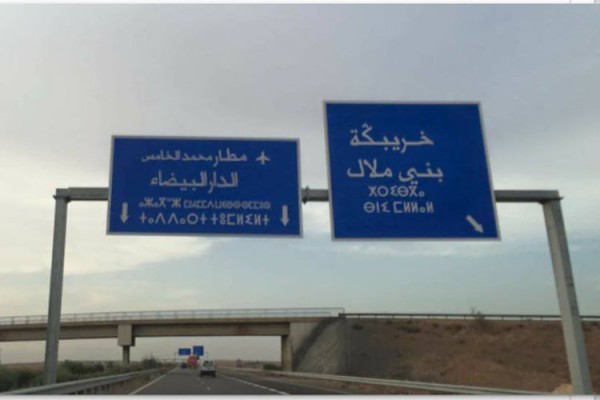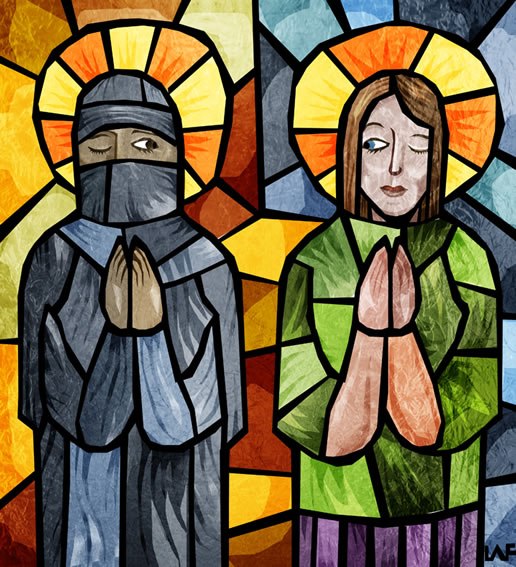Reconciliation: What is the process by which society is able to come to terms with and/or incorporate people, ideas and events of its past with the present?
“If you’re from Malaysia… you must be Malay, right?”
No. They are Malaysian.
Malay is a race and Malaysians are other races too – including Chinese, Indians, Ibands, Kadazans, Eurasians and more.
Reconciliation is needed in Malaysia between Malay Muslims and other ethnic groups within. Malaysia has had class struggles since it became a vital commercial center, with trade routes Islam spread through, later the British took over and huge Chinese immigration came into the area. The Chinese were skilled in business and commerce and were favoured and wealthier over native Malays who were good agriculturally. Urban and rural divisions and economic division arose. Malaysia won independence in 1957 and made Islam the official religion, affirmed religious freedom but with conditions. Citizenship were not automatically granted to those born in Malaysia and all ethnic Malays were considered Muslim by law and obliged to sharia court decisions. Education Act of 1961 sought to bring native Malay’s back to control through creating exclusive high schools. Some of these policies have been rectified but focus has been on correcting imbalances through economic plans and infrastructure (construction everywhere you look).
Today, Malaysia is still dealing with interethnic tensions. There are still systematic privileges given to ethnic Malays (Muslims, Bumiputras). On the ground, many people have various ethnic and religious friends but the incentive to become a Muslim is strong because of the government’s agenda. There is expression of other faiths, temples and churches, but in daily living economically it’s tougher. Politically, Malaysia has been accused of travelling to rural areas to make Muslim converts for votes with bribes and favourable conditions offered in return. This is unjust as it messes with people’s true identity. Because we only saw Kuala Lumpur, the reliability is reliant on second hand information, but seems consistent across those I spoke to.
Turkey: Kurdish “unrest” and how about that Armenian genocide? I mean… killings?
Ayse Erdem, an HDP party leader in Istanbul who is herself an ethnic Turk admits, “It’s a problem”. “A lot of people can’t bring themselves to vote for a Kurd, they just don’t see them as equal.”
It is history, but this is history still in the making. I met a Kurdish businessman in the Grand Bazaar who has numerous friends of different ethnicities and feels he, personally, is treated no different. But he couldn’t bring himself to talk about the past or what his family has experienced close to the Syrian border. One of the AKP representatives said there are no issues between Kurds and Turks (that’s not what news sources say). He has friends and family that are Kurdish with Istanbul having a high population of Kurds. But he failed to mention what the government is doing to reconcile events on the outskirts. There were protests to reconcile the Kurdish population and if they get over 10% they are allowed seats in government. But he says it’s an issue because we shouldn’t have parties that are primary ethnicities – could cause future discrimination. There are apparent intentions to change the constitution. More information on Kurdish history here:
It is tense because Kurds are spread out, some belong to terrorist groups but the Turkish government, from some news sources, have been going to those villages and not finding and killing terrorists but killing many civilians and demolishing towns. Protests are happening but the extent of the destruction is not welcomed. Reconciliation looks difficult with many agendas at play, concerns for power, security (ISIS) and PKK have made attacks on Turkey to have their own autonomous region, however civilians are murdered in the process. To resolve this democratically, you need to put your weapons down. But who would be wise enough to put theirs down first?
There is also the Armenian genocide. In short, there is still tension over the definition of “genocide” and giving respect to those killed. Other country representatives that do use the word genocide are not well considered by Turkey.
Whilst there is coexist of religions, particularly monotheistic, in Istanbul I heard there were Muslim converts that are missing. Two Catholic brothers shared their cautious experiences. This may not be the government, but could be a culture of honour killings. Further research would need to be done in this. I also heard that the government respect historic churches, but no new church building has been built in Istanbul since the collapse of the Ottoman Empire and rise of secularism.
Spain: Can there be an interfaith, place of prayer building?
Reconciliation between Christian/Catholic history and Muslims is quite relevant. We didn’t converse with many Muslims on this topic except for an Imam in Granada. Although he hasn’t felt discriminated against, he has seen Spain reintroducing their Islamic history in education books. Converting to Islam is a personal decision because it is not a national religion. Spain is unlike other European countries in that it has a knowledge of Islam that precedes ‘9/11’ and includes other conquerors. A ban still remains on Muslims to pray in the Mosque-Cathedral of Cordoba, several have tried but have been escorted out. This was one of the primary suggestions for further reconciliation.
Across the Roman bridge is the Museum which details their Islamic heritage and in Granada, a mosque across from the Al Hambra which is well attended. The Imam stated he is working with authorities (they ask him questions) about Islam and work together to understand each other and combat terrorism together.
Morocco: the case of the Amazighs – still feel marginalised.
In Morocco, it’s been five years since the recognition of Amazigh as an offical language in Morocco, alongside Arabic with French as their unofficial first language. The university students we talked with each spoke three or more languages and had the opportunity to study abroad.
The Amazigh (or berber – a more derogatory term) are a large percentage of the population and consider themselves the original inhabitants of North Africa, before Islam arrived. Most Moroccan Arabs may see Amazigh language inferior to Arabic because of its historic restriction and dialects. When we were there we saw increasing signage and language being used. I personally didn’t speak to anyone who experienced discrimination and those who weren’t Amazigh didn’t speak about them, but that’s not to say it’s not evident – just not evident to foreigners. The Amazigh peoples and human rights say government should stop interfering with their rights, including right of citizens to give Amazigh names to their children.

Feature photo found here.
























